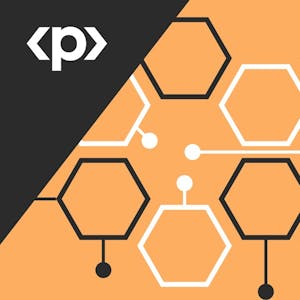Big Ideas in Programming: Expressing Yourself with Python
About this Course
Harness the power of Python and its programming concepts to express yourself and refine all the work you do with this online course from the University of Michigan. This course is designed for anyone interested in learning Python. Whether you want to discuss programming with other professionals, teaching others to code or use the language to do your own creative coding, this is the Python course for you! The big ideas in programming are the building blocks that allow you to create large, interesting, and useful programs. Mastering these programming concepts (variables, loops, strings, conditionals, and functions) and data structures (lists, tuples, and dictionaries) in Python will allow you to really express yourself in the digital space. The creative coding/programming skills that you acquire in this Python course will allow you to design and produce personalized stories, filter and transform data, use code visualisers, generate art, predict program output, and write better code that works smarter, not harder. You can expect plenty of interactive practice, engaging assignments, and immediate feedback. This allows you to check your understanding at every step of the way, giving you the chance to really develop your confidence and skill.Created by: University of Michigan

Related Online Courses
No matter how hard you try, there is no escaping the endless stream of advertising for all the nutritional supplements out there. From protein and creatine to caffeine and other more-controversial... more
GST, if applicable, can be paid in cash or through the utilization of input tax credit, also commonly known as ITC. In this course, you will learn about the concept of the input tax credit,... more
This specialization starts with an in-depth look at the physical geography of the Arctic and its key climate features, including the ocean\'s floating sea ice cover, the Greenland Ice Sheet, and... more
This course introduces basic time series analysis and forecasting methods. Topics include stationary processes, ARMA models, modeling and forecasting using ARMA models, nonstationary and seasonal... more
This course begins by setting up Anaconda and Jupyter Lab for Python and Pandas, providing foundational Python knowledge before diving into Pandas for data analysis. You\'ll learn Series and... more








